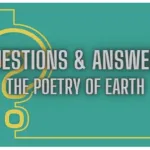Bihar Board 11th English exam helps students understand the syllabus better. This article provides important questions and answers for English and other subjects in a simple Q&A format. These questions help students prepare well for exams by covering different topics of each subject.
Bihar Board 11th English
Question: What is the theme of the poem “The Solitary Reaper”?
Answer: The theme of “The Solitary Reaper” is the beauty of nature and the music that transcends language barriers, focusing on the experience of joy and emotion.
Question: Who is the author of the poem “The Road Not Taken”?
Answer: The author of the poem “The Road Not Taken” is Robert Frost.
Question: Define a simile with an example.
Answer: A simile is a figure of speech that compares two things using “like” or “as.” For example, “Her smile is like sunshine.”
Question: What is the difference between metaphor and simile?
Answer: A simile uses “like” or “as” for comparison, while a metaphor directly states one thing is another, such as “Time is a thief.”
Question: What is a noun clause?
Answer: A noun clause is a dependent clause that acts as a noun in a sentence. For example, “What she said surprised me.”
Question: How do you identify a transitive verb?
Answer: A transitive verb requires an object to complete its meaning, such as “She reads a book.”
Question: What is a passive voice sentence?
Answer: In passive voice, the subject receives the action. For example, “The book was read by her.”
Question: How can we convert active voice to passive voice?
Answer: To convert active to passive, switch the subject and object, and use the appropriate form of “be” with the past participle.
Question: Define an adjective with an example.
Answer: An adjective describes a noun or pronoun. For example, “The beautiful flower bloomed.”
Question: What is the main idea of the story “The Last Lesson”?
Answer: The main idea of “The Last Lesson” is the importance of language and patriotism, set during the Franco-Prussian War.
Question: What are modal verbs?
Answer: Modal verbs express possibility, ability, permission, or obligation, like “can,” “might,” and “must.”
Question: What is direct speech?
Answer: Direct speech is when someone’s exact words are quoted, like, “She said, ‘I am happy.'”
Question: What is indirect speech?
Answer: Indirect speech reports what someone said without using their exact words, like, “She said that she was happy.”
Question: What is an adverb of manner?
Answer: An adverb of manner describes how an action is done. For example, “He speaks softly.”
Question: What is an interrogative sentence?
Answer: An interrogative sentence asks a question, such as “What is your name?”
Question: How to form a question tag?
Answer: A question tag is a short question added to the end of a sentence, like “You are coming, aren’t you?”
Question: Define a conjunction with an example.
Answer: A conjunction connects words, phrases, or clauses, like “and,” “but,” or “because.”
Question: What is a phrase?
Answer: A phrase is a group of words that acts as a single part of speech, such as “in the park.”
Question: Explain the central theme of the story “Lost Spring.”
Answer: The central theme of “Lost Spring” is the harsh realities of child labor and the loss of childhood dreams.
Question: What is a preposition?
Answer: A preposition shows the relationship between a noun and other words, like “in,” “at,” or “on.”
Bihar Board 11th Mathematics
Question: What is the formula for the area of a circle?
Answer: The formula for the area of a circle is πr², where “r” is the radius of the circle.
Question: Define a quadratic equation.
Answer: A quadratic equation is an equation of the form ax² + bx + c = 0, where a, b, and c are constants.
Question: What is a linear equation?
Answer: A linear equation is an equation that forms a straight line when graphed, typically written as y = mx + c.
Question: What is the Pythagorean Theorem?
Answer: The Pythagorean Theorem states that in a right-angled triangle, the square of the hypotenuse equals the sum of the squares of the other two sides.
Question: Define a polynomial.
Answer: A polynomial is an algebraic expression with more than one term, such as 3x² + 2x + 1.
Question: What is the derivative of x²?
Answer: The derivative of x² with respect to x is 2x.
Question: Explain the term “mean” in statistics.
Answer: In statistics, the mean is the average of a set of numbers, calculated by dividing the sum of values by the number of values.
Question: What is a function in mathematics?
Answer: A function is a relation where each input has exactly one output, often written as f(x).
Question: Define an angle.
Answer: An angle is formed by two rays that have the same endpoint, measured in degrees.
Question: What is the circumference of a circle?
Answer: The circumference of a circle is given by the formula 2πr, where “r” is the radius.
Question: What is the formula for the volume of a cube?
Answer: The volume of a cube is given by the formula a³, where “a” is the length of a side.
Question: What is a rational number?
Answer: A rational number is any number that can be expressed as the quotient of two integers, like 3/4.
Question: Define probability.
Answer: Probability measures how likely an event is to occur, calculated as the ratio of favorable outcomes to total outcomes.
Question: What is a tangent to a circle?
Answer: A tangent is a line that touches a circle at exactly one point.
Question: Define the term “factorization.”
Answer: Factorization is the process of breaking down a number or expression into its factors.
Question: What is a histogram?
Answer: A histogram is a graphical representation of data using bars of different heights to show frequency distribution.
Question: What is the sum of angles in a triangle?
Answer: The sum of the angles in a triangle is always 180 degrees.
Question: Define a parallelogram.
Answer: A parallelogram is a quadrilateral with opposite sides parallel and equal in length.
Question: What is integration in calculus?
Answer: Integration is the process of finding the integral of a function, often representing the area under a curve.
Question: What is the formula for the slope of a line?
Answer: The slope of a line is calculated as (y₂ – y₁) / (x₂ – x₁).
Bihar Board 11th Physics
Question: What is Newton’s first law of motion?
Answer: Newton’s first law states that an object will remain at rest or in uniform motion unless acted upon by an external force.
Question: What is acceleration?
Answer: Acceleration is the rate of change of velocity with respect to time.
Question: Define force.
Answer: Force is an external influence that can change the motion of an object, measured in newtons.
Question: What is work done?
Answer: Work done is the product of force and displacement in the direction of force, measured in joules.
Question: What is the unit of power?
Answer: The unit of power is the watt, which equals one joule per second.
Question: What is potential energy?
Answer: Potential energy is the energy stored in an object due to its position or configuration.
Question: Define kinetic energy.
Answer: Kinetic energy is the energy of an object due to its motion, calculated as ½mv².
Question: What is the speed of light?
Answer: The speed of light in a vacuum is approximately 3 × 10⁸ m/s.
Question: What is Ohm’s Law?
Answer: Ohm’s Law states that the current through a conductor is directly proportional to the voltage across it, provided the temperature remains constant.
Question: Define an electric circuit.
Answer: An electric circuit is a closed path through which electric current flows.
[save_as_pdf_pdfcrowd]
Latest Posts
- Step-by-step guide to download and apply for jee mains admit card 202
- Comprehensive 2025 government holidays and recruitment details for job seekers
- JEE Mains Admit Card 2025: Your Step-by-Step Guide to Downloading the Hall Ticket
- Everything You Need to Know About 2025 Government Holidays Recruitment
- Comprehensive Guide to rrb d group recruitment 2025 – Eligibility, Vacancies, and Application
- Detailed guide to nps trust recruitment 2025 vacancies, eligibility and apply process
- Comprehensive guide to hpcl recruitment 2025 notification, vacancies, and application process
- ignou bed admission 2025 complete recruitment guide with eligibility and process
- Comprehensive Guide to Indian Army Agniveer Recruitment 2025 Notification and Jobs
- Everything You Must Know About CBSE Board Exams 2025 Changes & New Rules





